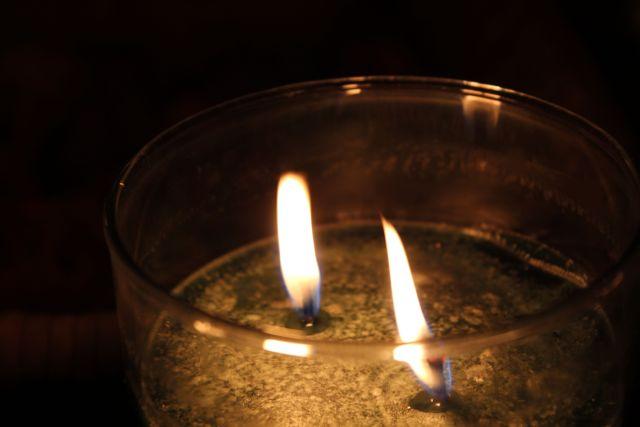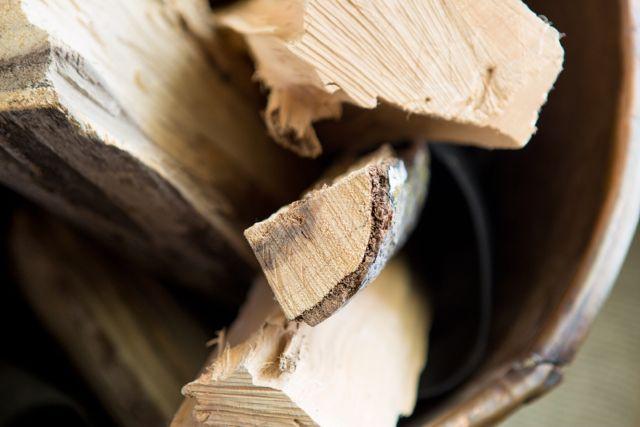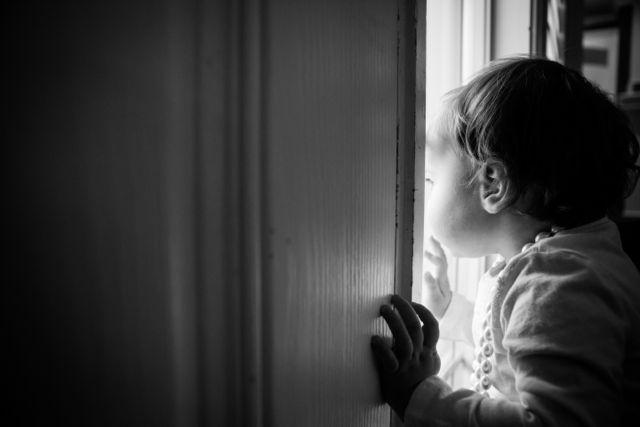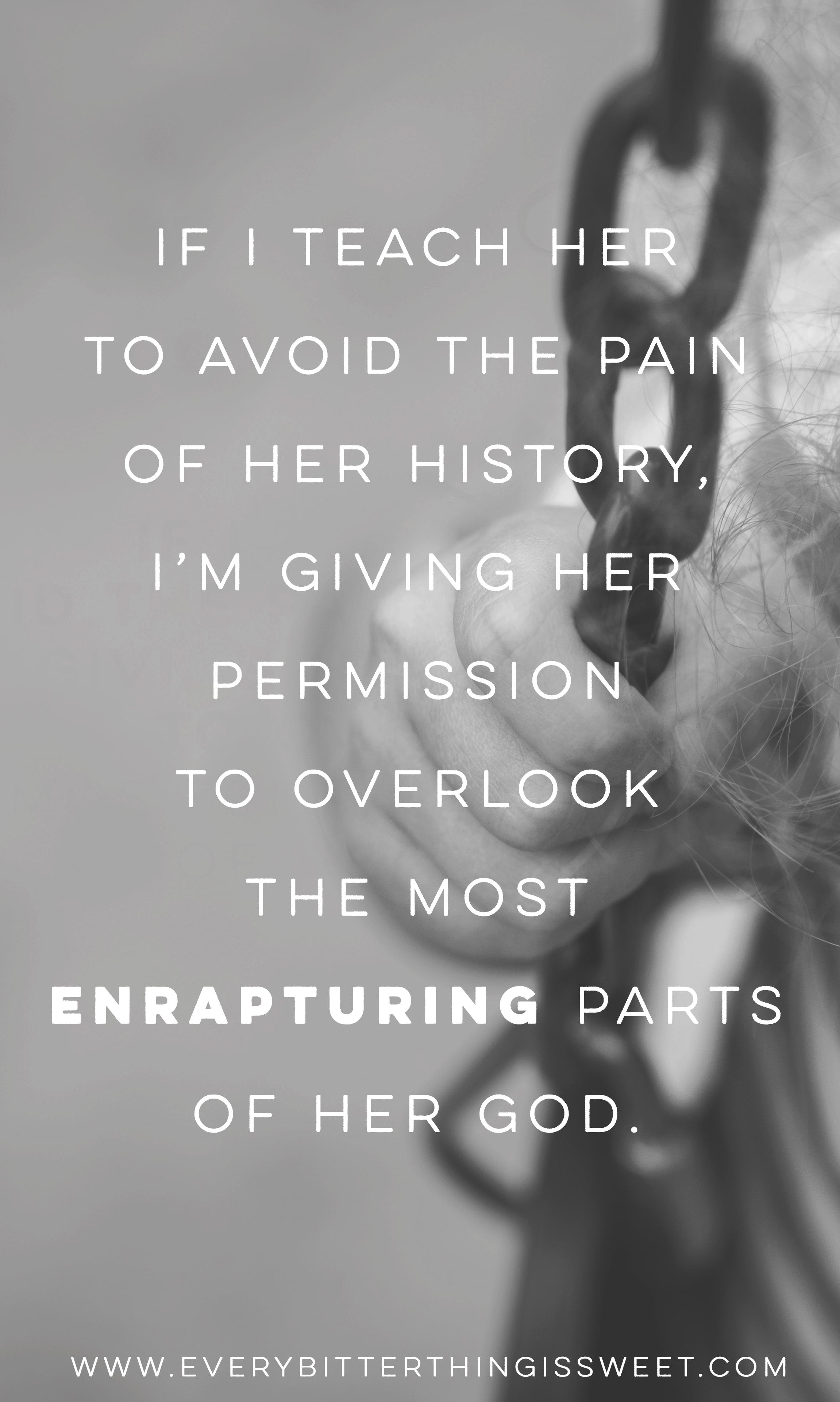He has seven teeth and only one person elicits a full reveal.
All seven of us were around the dinner table laughing at the antics of the just-over-one year-old. Deep belly giggles and a single one-syllable word (at varying decibels) to describe just about everything — this babe is better than an electric train for his siblings. And at the dinner table, Daddy draws out the best of that kid.
So there he was, spitting image of his father and sitting four seats away, showing off all those teeth in one direction.
“We think he might grow up to look like Peter in Narnia, Daddy,” says one.
“But I saw your baby pictures, Daddy, and he looks just like you,” said another casually, in between bites.
“His hair is turning out to be the same color as yours and his eyes are blue, too,” says a third. “You know, Daddy, I think he looks just like you.”
“Nah,” says Nate. “We’ll have to just wait and see what he looks like.” In other conversations like this, he’s reminded Caleb how many people say they look alike, but for the color of their skin. I do the same thing.
As the girls move on to talking about hair color, Nate jumps in: “your hair color is the same brown as Mommy’s.” They don’t agree with him. Mine’s lighter, they argue.
Everyone is taking bites and weighing in on hair color and eyes and even the varying skin colors of one another (common discussion in our home) and this conversation, for me, feels super-charged.
It’s not that I don’t want them to notice the differences between their light-skinned brother — the only one of five children that my body birthed — and themselves. Observation is childhood’s currency.
It’s that I don’t want them to feel the differences.
We asked close friends, in advance of Bo’s birth, not to do that baby thing we all do. “Hmm…he’s got your lips, Sara, but that chin is all Nate.” We didn’t know what three, four and seven days post-baby might feel like to the ones who’ve fully owned being Hagerty children, but who didn’t come from my womb. I didn’t trust my sleep-deprived body — in those first few days after it gave itself over to bringing forth a child — to be able to also handle the insecurities and fears and questions that might come. Just then, at least.
But here we are 16 months later and the prospect of their pain as they stare across the table at the babe who has his Daddy’s eyes — while most of them won’t ever even see a picture of their biological father — is still too much for me. I want to pretend, to skirt the potential pain — “Oh, no, sweetheart. He doesn’t at all look like Daddy. Don’t you see, you’re tall like Daddy and he’s short.” — in any.way.I.can.
I’ve cried more about the years I didn’t have with my other four, now that I am actually changing diapers of their baby brother and running my finger along his gums to feel for new teeth and tickling his tiny toes, than I ever did when we first brought them home.
I didn’t know, then, all that I missed.
I didn’t realize, then, all that they missed.
I didn’t know the ache that would come from the slow realization that they were formed in their biological mommy’s womb but they can’t picture her smile. I didn’t expect they’d wonder what she smelled like or if her forehead wrinkled when she laughed. I wanted us to be enough, with my overly simplistic understanding of “enough.”
So I would look away.
Ever have that happen — where you see something that seems so big and painful and cloudy that you just feel like you have to… look away?
Human nature creates a method out of looking away.
What was it in me that took me almost two decades to realize that having a once-vibrant, active, engaged father wind up in a wheel chair and a bed in our family room for months (in a turn of events that happened in one day and with one bad doctor’s appointment) might have altered the entire way I saw the world?
For the longest time I thought it was “just another bad day”. So I looked away and kept moving.
How did I live for two decades as if that was just a dot on my timeline, not the game-changer it really was?
In our limited perspective on God and His engagement with the broken parts of our history, we so dutifully press on as if that dot on our timeline can be glided over. History. “Oh, silly,” I say to her. “Bo doesn’t really look all that much like Daddy. His hair is like Daddy’s just like your fingers are skinny like Daddy’s.”
For now at least, that’s fine.
But at some time in the next decade, I want her to know the God who’s face is fiercely set to heal her heart, the heart that will soon ache at the missing pieces of her baby book.
I want her to cry at His feet when she realizes — just like I did at the dinner table the other night — that she’ll never (on this side) see the face of the beautiful woman whose body grew her. I want her to feel the hands of God cup her chin and look in her eyes, with limitless understanding of her pain, when her pain makes her want to glide over and pretend all that loss never happened.
I want to her to have a tender brush with the God who came to make the broken sing.

So: If I teach her to avoid the pain of her history, I’m giving her permission to overlook the most enrapturing parts of her God.
The dark parts of our history were made for conversation with God. And when we invite Him into those times when it seemed like the lights went out in our history, He brings His story out of us.
If she skirts past the pain of her history — and the way He reaches out to fuse that wound with the nearness of His tenderly calloused hands — she may also miss her most profound story in God.
Dear church:
He has a story of Himself to tell through our lives. What if it’s through the most broken places?
What angles of God as Restorer are not being revealed, from us to the world, because we’ve become so good at coping with our broken history (instead of inviting Him into it)?
What angles of God are not being revealed, from Him to us, because we’ve become so good at looking away?
Dear church, He wants to heal your story, not just give you a way to cope with it.

Making it practical: The Holy Spirit is our counselor. We don’t need to dig. If, as you read these words, certain memories or blips in your past come to mind, perhaps set aside time today to sit before Him. Take these memories to Him with His Word in your hand. Write out the broken places that He’s surfacing and the feelings you had in those moments. (And, friends, they aren’t always “big” moments — sometimes even the simple loss of a friend at a critical time in your childhood can leave an open-ended question of pain before God. For decades.) Ask Him to replace those feelings with the truth of His Word. Write His Word over those. Invite Him to tell you who and where He was, in that moment, according to His Word. Let Him re-write this part of your story with who He was for you, then.
This may take weeks or months, but pray with expectation that He wants to heal this past pain with Himself.
For the others? No memory comes to mind but you can tell you’re walking with a limp — a bone is broken … somewhere. Prepare yourself for a long conversation, over weeks and months, with God. Ask Him to teach you about your heart and get ready to hear His response. He is the God of infinite understanding. And He made you. He knows the road map here — it may just be the time for you to ask Him for insight.
After all, this wounded One loves to heal.
For Your Continued Pursuit: Psalm 139 | Psalm 34:18 | Hosea 2:15 | Joel 2:25 | John 1:4-5 | 2 Corinthians 5:17 | Psalm 51:5-13 | Isaiah 53:5
First, second and fourth photos compliments of Cherish Andrea. Third photo compliments of Mandie Joy.



